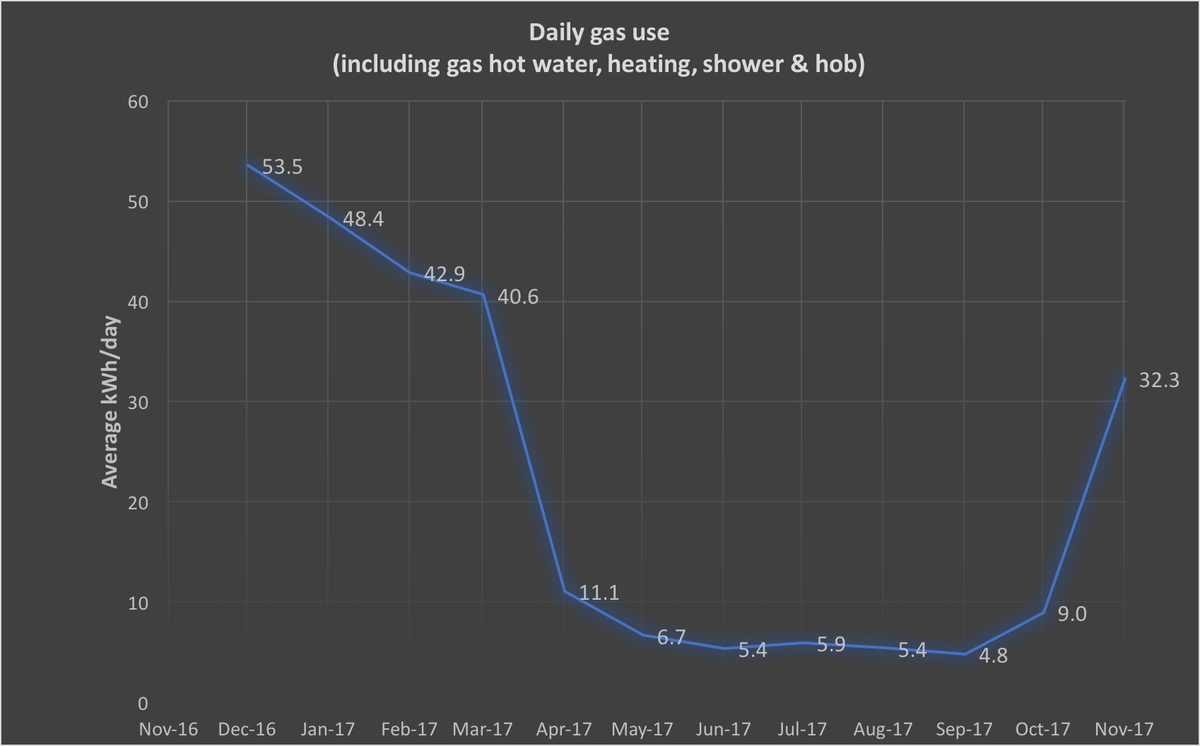No time to blog, but you can follow progress on Twitter: https://twitter.com/clv101/mediaKukunir wrote:Also, I checked your blog, hoping to see the progress you have made since April. Wonder how the construction looks like now?
Building a house
Moderator: Peak Moderation
-
Little John
So, if you are only citing materials for your own house, then a fair comparison would be with the materials required for a conventional house. So, I fail to understand why you have compared your material costs to a conventional house including the labour to build it.clv101 wrote:It's a good question. Our total build cost is around £750/sqm, but that looks higher than it needs to be as around half the building is double height (~6m) so we've got less internal floor area than we might have for a building this size. ie we could get around a third more floor area for relatively little extra cost.Kukunir wrote:Excuse me, if it was already mentioned somewhere in the replies, but is this way of building a house cheaper than when using not local and perhaps even non-sustainable materials?
I would like to live in exactly the same house one day like you, as I care about being in sync with the environment and local traditions, while at the same time have access to all modern gadgets.
Also, I checked your blog, hoping to see the progress you have made since April. Wonder how the construction looks like now? Do you already live in?
This is around half the price of 'conventional' builds, BUT doesn't include 18 months of my labour (and a lot of other folk pitching in for free) to build the thing!
Some aspects of local or natural materials are cheaper (straw bale), but others (wood fibre insulation) are more expensive.
Won't be moving in until the spring.
Or, are you saying the materials costs of your house is 50% less than the materials cost of a conventional house? In which case, that would be impressive.
Can you clarify this point please?
I'm not only citing materials. I'm citing, as I said above, our total build cost.
This includes materials, professional services (building control, structural engineer etc), labour for the stuff I can't do (roundwood timber framing, electrician, sprinkler system install etc).
I'm not sure what proportion the material costs are for a conventional build. As I said above some of our materials are cheaper, some are more expensive. But also the design with a lot of double height space makes our cost per square meter look more expensive than a conventional build, also there's all our off-grid power infrastructure that a conventional build wouldn't have.
This includes materials, professional services (building control, structural engineer etc), labour for the stuff I can't do (roundwood timber framing, electrician, sprinkler system install etc).
I'm not sure what proportion the material costs are for a conventional build. As I said above some of our materials are cheaper, some are more expensive. But also the design with a lot of double height space makes our cost per square meter look more expensive than a conventional build, also there's all our off-grid power infrastructure that a conventional build wouldn't have.
-
Little John
Okay.
So a simple way to resolve the comparison to is to add up the man hours that have been carried out without pay and add them to your total cost and then use that as a direct comparison to the total cost (including labour) of a conventional build.
Have you kept count of the unpaid man hours spent on your build?
So a simple way to resolve the comparison to is to add up the man hours that have been carried out without pay and add them to your total cost and then use that as a direct comparison to the total cost (including labour) of a conventional build.
Have you kept count of the unpaid man hours spent on your build?
-
kenneal - lagger
- Site Admin
- Posts: 14290
- Joined: 20 Sep 2006, 02:35
- Location: Newbury, Berkshire
- Contact:

